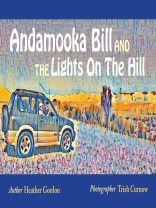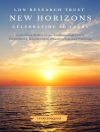Andamooka Bill and the Lights on the Hill describes men’s relationships to each other in an Australian outback opal town. The banter, the grit, the gossip, the toughness and underneath it all, the informal supports that enable the men to front up each morning for an iced coffee and a chat about the weather and the news. Their camaraderie belies their rough appearance and speech.
With a range of stressors influencing depression and anxiety, the incidence rate among men in rural and remote areas is significantly higher than the general population. Due to the isolation and difficulty accessing appropriate services, the need for a strong social network becomes more apparent as a means to reduce stigma and build resilience. The Bonnet Club members are informally taking action against depression, anxiety and suicide. Even if that’s not their agenda.’
Tim Retallick
RFDS Remote Area Nurse, Andamooka
(May 2017 — February 2019)
‘The Bonnet Club helps blokes take care of what’s under their hoods, even though they don’t know they’re mental health mechanics.’
Dr Jen Cleary
CEO Centacare Catholic Country SA
Member of SEGRA (Sustainable Economic Growth for Regional Australia) National Steering Committee, SACOSS Policy Advisory Council and the TAFESA Board
‘This delightful little story of Andamooka Bill and the Bonnet Club is a fitting metaphor the Men’s Shed movement around Australia reflects. Combined with some terrific illustrations depicting the various characters, street names and locations, the story tells of blokes catching up with each other to share stories and support each other to ‘work things out’.
Men’s mental health can be a difficult route to navigate given that most men don’t like to acknowledge issues around anxiety, depression or suicidal ideation. Whilst many men may perceive these as a ‘weakness’, acknowledging them is actually a strength. They are a common phenomenon in cultures throughout communities around the planet.
Men accessing support services when they are available (more difficult in regional and remote areas) can be a challenge. Advances in digital technology are making these services more accessible each and every day. Men and boys accessing services when they are available can be a challenge… albeit one worth persevering.’
Phil Walcott
M.A. B. Soc. Sci. Dip. Teach J.P MAPS
Counselling Psychologist
Alice Springs NT
Об авторе
‘I was escaping the freezing Barossa winter by holidaying in Andamooka. I was there for five weeks to care for a lovely dog while the grumpy house owner was overseas. The front verandah was set up so I could experiment with encaustic art. Every day I had a morning routine of playing with the beeswax and colours in the sunshine; toasties for lunch and a tidy up of the yard along with the occasional game of football with Puss (the dog). Every afternoon Puss and I would find a new place to watch the sunset. Every evening I was wrapped in my doona reading. It gets chilly at night in the arid zone.I’d been there about a week, and apart from finding the 2G network a bit tedious, I was enjoying the sunshine and arty experimentation.I received a message from the house owner, asking me if I was ok, because no one had seen me around and they were wondering if I was still alive. The instruction was ‘so you’d better get down to the bottle shop at 9am tomorrow morning’. Dutifully, I attended at the Bottle Shop. This was my real introduction to everything Andamooka. I was treated to local knowledge and told where to go to get the best photos (oh, yes, it had been noted where I’d been driving for sunsets and that Puss was always with me). It seems the routine was to buy an iced coffee, to have a chat with Bottleshop Bob, to throw a bottle cap for his dog (who I decided was Bottlecap Dog) then join the locals outside in the sunshine leaning on a bonnet to review world and local events. This was the inspiration for this book.’ ‘Barossa Nanna and the Lonely Chook’ (2014) was Heather’s first published book. It gently deals with grief and loss in a way that children can understand. Heather has worked extensively in rural and remote regions of Australia. Heather’s love of the Australian landscape is reflected in her photography, mosaics and collage.












